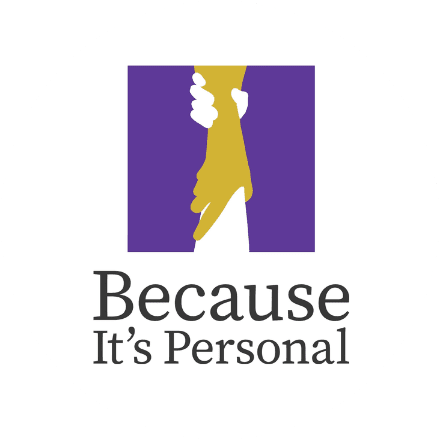How to Get Over a Friendship Breakup: Coping Strategies That Work

Posted on September 5, 2024.
It's not always romantic relationships or family ties that leave us feeling complex arrays of emotions. Friendships, often overlooked when we discuss impactful relationships, hold immense significance in our lives.
The end of a friendship can often mimic the intense emotions that come with other types of breakups. It’s surprisingly common to find yourself grappling with feelings of grief as if you've parted ways with a part of your own identity.
Do you ever find yourself reminiscing about shared jokes, memorable trips, or those late-night conversations? Each of these memories may bring a mix of joy and sorrow that feels almost overwhelming.
The end of a friendship strikes a chord in ways that are deeply personal but less acknowledged. Think about it: your close friends are often the ones who’ve stood by you through various ups and downs, and losing that support system can feel like the ground has shifted beneath you. The emotions that follow—whether it's sadness, anger, or confusion—are legitimate and deserve your attention.
Going through a friendship breakup is tricky because it leaves you processing several powerful emotions all at once. Unlike breakups in romantic relationships where societal norms often provide a loose framework for handling the aftermath, friendship breakups leave us guessing our way through the grieving process. You’re caught in a whirlwind of emotions, trying to make sense of what just happened. The sadness you feel, or the anger when you feel wronged or let down, show just how much the friendship meant to you.
This blog post will provide tips to help you get over a friendship breakup.
Acknowledging Your Emotions After a Friendship Breakup
When you face the emotions after a friendship breakup, it’s important to really allow yourself to feel. You'll probably feel a variety of emotions:
 Deep Sadness
Deep Sadness
You might find yourself thinking continually about the good times, and this can bring about a profound sense of loss. One patient who lost a high school friend with whom I shared countless adventures, told me that for weeks, she replayed our memories, struggling to reconcile them with the present reality.
Understanding that your sadness is a reflection of how much the friendship meant to you it's the first step to healing.
Anger
Anger is a powerful emotion that often surfaces when we feel betrayed or misunderstood. Perhaps your friend let you down or didn’t support you when you needed it the most. I recall a client whose long-term best friend abruptly ended their relationship over a trivial misunderstanding. She was furious, not just at her friend, but at herself for not seeing it coming. Anger, while uncomfortable, can also be useful in highlighting what you valued in the relationship and where boundaries might have been crossed.
Confusion
Confusion is also a frequent companion when dealing with a friendship breakup. You may find yourself replaying conversations, wondering where things went wrong, and questioning the authenticity of your mutual feelings. It’s a disorienting experience, leaving you doubting your judgment and the very foundation of your connection. You need to recognize that confusion is part of processing complex emotions. It’s your mind’s way of making sense of the seemingly inexplicable loss.
Accepting and Processing the Friendship End
Accepting the end of a friendship doesn't mean you need to be okay with it right away or ever fully. But it's about acknowledging that this bond has come to a natural conclusion and allowing yourself to begin moving forward. Sometimes, accepting friendship breakup may involve acknowledging that some people enter our lives for specific periods and purposes. Their departure doesn't invalidate the moments you shared or the personal growth you experienced together.
1. Seek Closure
Seeking closure is another key component in handling a friendship breakup. You might feel the need to have one last conversation with your former friend, to express your feelings or ask lingering questions. If that's not possible or you're not comfortable with it, seeking closure on your own terms is equally effective. Writing a letter to your friend—it doesn't matter if you send it or not—can often help. By putting your thoughts on paper, you can achieve a sense of release.
2. Be Patient With Yourself
Understand that this might take time; closure is a journey, not a destination. Reminding yourself that not all friendships are meant to last forever is key. Every relationship serves its purpose. In retrospect, you might realize that the friendship enabled you to learn more about yourself, even though it ended. This introspection can enrich your current and future relationships.
Expressing Your Feelings and Seeking Support
Expressing your feelings after a friendship breakup is not only about voicing your pain but also about doing so constructively.
 3. Try Journaling
3. Try Journaling
Writing in a journal can be a cathartic experience. It allows you to chronicle your emotions, trace the growth of your feelings, and identify recurrent themes in your thoughts. This personal dialogue gives you a private space to assess your situation without external judgment, transforming your raw feelings into a narrative that even you can understand more clearly. Think of it as a private conversation with yourself that helps you process your journey.
4. Lean on Your Support Network
Open up to other friends, family members, or a transformational life coach. Talk through your feelings with someone who can provide a listening ear and offer objective perspectives. You don't have to go through this alone, and seeking support does not diminish your strength or independence.
If you find it challenging to verbalize your emotions, joining a support group allows you to connect with people facing similar experiences. When you hear others' stories, it can be incredibly validating and healing.
Prioritizing Self-Care and Personal Growth
Prioritizing self-care is vital after a friendship breakup. Your emotional well-being deserves attention, just like any other aspect of your health. Engage in activities that promote relaxation and joy—whether that's indulging in a warm bath, reading an engaging book, or treating yourself to a favorite meal.
5. Pick Up a New Hobby
Have you considered picking up a new hobby? Exploring interests you’ve always been curious about can be incredibly fulfilling. Whether it's painting, gardening, or photography, immersing yourself in something new can be a wonderful distraction and a form of self-expression. The key is to fill your time with activities that nurture your heart and soul.
6. Incorporate Movement and Exercise
Exercise has been scientifically proven to reduce stress and improve mood. Even something as simple as a daily walk in the park can make a significant difference. Do you have a favorite form of physical activity? Whether it’s yoga, cycling, or a vigorous run, moving your body can help release built-up tension and foster a sense of accomplishment. Not to mention, regular physical activity can enhance your overall well-being, making it easier to cope with emotional stress. The goal isn’t to become a fitness enthusiast overnight but to incorporate movement that feels good and keeps you grounded.
7. Practice Mindfulness and Be Grateful
Mindfulness practices can be a soothing balm during this challenging time. Techniques such as meditation, deep breathing exercises, or even mindful eating can help you stay present and manage overwhelming emotions. Apps and online resources offer accessible ways to begin.
Moreover, practicing gratitude can shift your focus from what you’ve lost to what you still have. Keeping a gratitude journal, where you jot down things you're thankful for each day, can gradually change your perspective and introduce more positivity into your life. Taking care of yourself is not a luxury; it’s a necessary part of healing that enables you to emerge from this experience stronger and more resilient.
Final Thoughts
As you move through these stages of healing, keep in mind that help is available, and seeking support can make a tremendous difference.
At Because It's Personal, we understand the complexities of losing a friendship and how it can impact your overall well-being. That's why we offer transformational lifestyle coaching to guide you through this journey. Our coaches can provide the tools and emotional support you need to not only cope with the breakup but to also come out the other side more resilient and self-aware.
Imagine talking through your emotions with someone who understands and can offer practical advice tailored to your situation. If you're considering this, don't hesitate to explore our Transformational Lifestyle Coaching services.
Moreover, our services extend beyond emotional support. Being aware that life's challenges often intertwine, we offer multi-dimensional assistance, including housing and career counseling. Moving through a significant emotional upheaval like a friendship breakup can sometimes destabilize other areas of your life. You might find yourself needing a fresh start, be it in a new living environment or even in your career path. Our team is here to help you go through these transitions smoothly.
Need help? Get in Touch Now!
Our holistic support is just a phone call away. Reach out to us at (470) 387-1951 or via email at [email protected] to learn how we can assist you in various aspects of your life.
Contact Us
Connect With Us
Get in touch with Because It's Personal, Inc. to learn more about our transformative programs. Join us in making dreams a reality, and together we can create positive change. Fill out the form below to start the journey!
